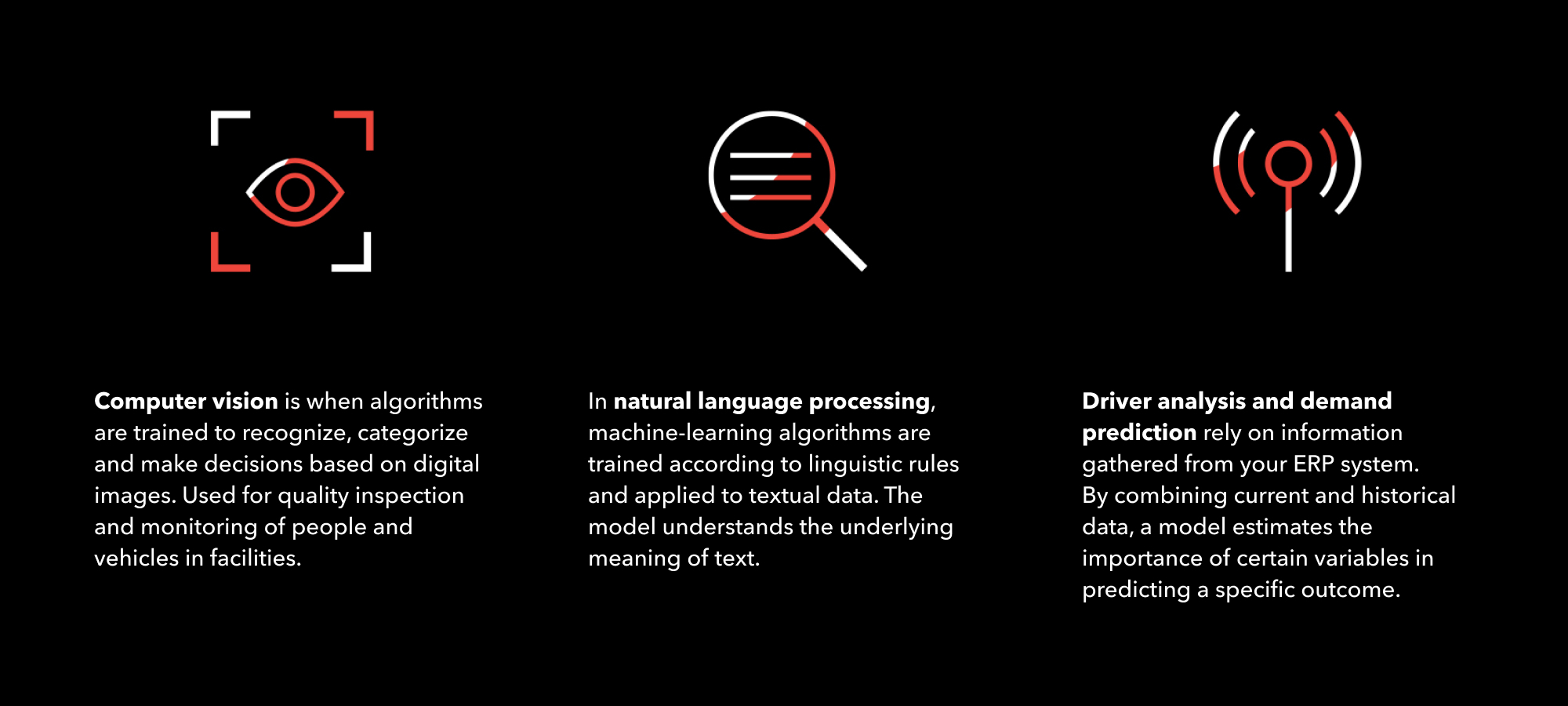Discover 3 core machine-learning technologies
Lining up with the three types of data we discussed in another blog post, delaware.ai works with three different intelligent automation technologies. These correspond with the activities of visual processing, linguistic processing and advanced statistical analyses. And it’s a fact: machines can perform these tasks better, faster and more consistently than people in certain contexts.
The human brain is excellent at processing visual input and built to understand languages. Teams of trained data scientists have no trouble handling complicated statistical models. But why give people these tasks in repetitive, laborious settings like operations when machines are up to the challenge?

Electric eyes? You might be surprised
Computer vision is when algorithms are trained to recognize, categorize and even make decisions based on the contents of digital images and video. This is especially useful in contexts like quality inspection and monitoring of people and vehicles in facilities and production environments.
When it comes to computer vision, our partnership with deep-learning hardware and software expert Robovision makes the benefits of AI available to small and medium-sized companies as well as large enterprises. RVAI, Robovision’s code-free, easy-to-train computer vision platform offers scalable deep learning insights on premises or in the cloud.
Even more, RVAI comes with an intuitive interface that enables you to automatically label images, speeding up the time to value of your computer vision model.
Machines have the last word
Language is one of the things that makes us human. But natural language processing puts the parsing, understanding and even generation of linguistic information into the hands of a computer – with results that speak for themselves.
In this technology, machine-learning algorithms are trained according to linguistic rules and are applied to textual data. The result is a model that understands the ideas and concepts behind words, sentences and paragraphs, and which can be applied to any language. Instead of zeroing in on keywords like traditional search-based textual filters, natural language processing can grasp the underlying meaning of text.
Our team of data scientists uses open-source libraries and sPacy technologies to create production-ready systems tuned to your business purpose.
Computers unlock the mysteries of the present – and the future
Advanced techniques like driver analysis, demand prediction and regression rely on information gathered from, for example, your ERP or manufacturing execution system. By combining current and historical data, a model can estimate the importance of particular variables in predicting a specific outcome.
This is where our partnership with DataStories comes in. This data analytics firm has opened up augmented analytics to non-data scientists with its comprehensive software platform and powerful computational engine. The platform visualizes production data and displays it in the form of stories that you can tweak and use to simulate the outcomes caused when specific operational factors are changed. I.e. – identify exactly where to modify your production line to manufacture the best-possible products.
Ready to discover real-life business cases where delaware.ai implemented these technologies to solve operations challenges? Download our exclusive e-book: ‘AI & operations: Adding intelligence to your operational processes’.



